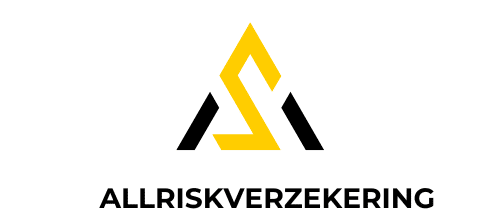Artificial Intelligence (AI) is rapidly changing the face of many industries, and healthcare is no exception. Among its numerous applications in this sector, one area where AI has shown significant potential is in the field of personalized cancer treatment. This technology is enabling medical professionals to tailor treatment plans to individual patients more accurately than ever before. The data-driven approach of AI is proving instrumental in improving clinical outcomes, enhancing patient care, and advancing the understanding of this complex disease.
Incorporating AI in Patient Diagnosis and Treatment Planning
The first step in cancer treatment is accurate diagnosis, a process that AI can greatly enhance. Machine learning models trained on extensive health data can assist in distinguishing between benign and malignant tumors, identifying cancer subtypes, and even predicting patient prognosis.
This might interest you : How Is Technology Impacting the Real-Time Monitoring of Ocean Acidification?
AI is not merely a tool for diagnosis; it also holds promise in treatment planning. These AI models can analyze vast amounts of clinical data from multiple patients to identify patterns and correlations that may not be evident to the human eye. This ability enables the development of individualized treatment plans based on a patient’s unique characteristics. For instance, AI can forecast how a certain type of cancer might respond to a specific drug, or anticipate potential side effects a patient might experience.
Enhancing Drug Discovery and Development
Drug discovery and development are integral parts of cancer treatment. AI can expedite these processes by analyzing large quantities of data related to potential drugs and their effectiveness. Machine learning methods have been employed to predict drug responses based on genetic profiles, thereby enabling the creation of personalized combination therapies.
Also read : Can Smart Fabric Enhance Athlete Performance Monitoring in Competitive Sports?
In addition, AI can identify potential drug targets by examining the molecular structure of cancer cells. This information can be used to design drugs capable of directly attacking these targets while sparing healthy cells. By doing so, it can significantly reduce the side effects associated with traditional cancer treatment methods.
Improving Patient Care with AI
Artificial intelligence doesn’t just enhance the aspects of diagnosis and treatment; it also has the potential to improve patient care in significant ways. AI can be used to monitor patient’s health status and alert medical professionals if any drastic changes occur. It also provides patients with access to information about their condition and treatment options, enabling them to make informed decisions about their care. Furthermore, AI facilitates communication between patients and healthcare providers, promoting a more patient-centered approach.
Promoting Scholarly Learning and Knowledge Sharing
Artificial intelligence is proving invaluable in the realm of scholarly learning and knowledge sharing in the field of cancer research. AI can analyze countless medical journals, research papers, and clinical trial data to extract valuable insights. These insights can be shared across the global medical community, fostering a collaborative approach to combating cancer.
For scholars, AI tools can help analyze and interpret complex data sets, making it easier to draw conclusions. This accelerates the pace of research, as it decreases the time spent on data analysis and increases the time available for hypothesis testing and experimentation.
Bridging the Gap between Clinical and Genetic Data
One of the most revolutionary applications of AI in personalized cancer therapy is in bridging the gap between clinical and genetic data. Understanding a patient’s genetic makeup can provide vital clues about how their body may respond to certain treatments. AI can analyze this genetic data alongside clinical information, helping identify patterns that might predict a patient’s response to treatment.
In recent years, advances in AI have led to the development of predictive models that can analyze a patient’s genome, their cancer’s genetic profile, as well as other clinical data, to predict how a patient will respond to a particular therapy. This has the potential to significantly improve clinical outcomes and reduce the amount of trial and error often associated with selecting the appropriate cancer treatment.
In conclusion, the field of personalized cancer therapy is being reshaped by AI in profound ways. The ability of this technology to analyze vast amounts of data, predict treatment outcomes, and foster knowledge sharing among scholars is revolutionizing the way cancer is diagnosed and treated. As AI continues to evolve, its potential in personalized cancer therapy is bound to increase, leading to more accurate diagnoses, effective treatments, and improved patient care.
The Role of AI in Early Detection and Decision Making
Early detection of cancer increases the chances of successful treatment significantly. With the advent of AI in healthcare, the possibilities for early detection have grown exponentially. Machine learning algorithms and neural networks are being used in analyzing medical images, a process known as radiomics. This high-throughput extraction of large amounts of image features can help in the early detection of diseases like breast cancer.
The power of AI lies not only in its ability to detect cancer but also in its potential to assist in making treatment decisions. Deep learning algorithms can sift through vast datasets from clinical trials and medical literature, analyzing patterns to generate insights for optimal decision making. These algorithms can even be trained to take into account the patient’s genetic makeup, leading to precision medicine – a tailored approach to treatment that considers an individual’s genetic, environmental, and lifestyle factors.
AI also plays a significant role in cancer immunotherapy, a treatment that uses the body’s immune system to fight cancer. Machine learning models can help predict which patients are likely to respond to immunotherapy, enabling healthcare providers to roll out optimal treatment plans. This approach significantly improves patient outcomes and accelerates the overall treatment process.
AI and the Future of Personalized Cancer Therapy
The integration of artificial intelligence into the world of personalized cancer therapy is likely to continue growing at a rapid pace. As machine learning and deep learning technologies continue to evolve and mature, they will become more adept at analyzing and interpreting vast amounts of genetic, clinical, and patient data to predict treatment outcomes more accurately.
Future innovations in AI could lead to breakthroughs in drug discovery, potentially identifying new targets for cancer treatment. Advanced neural networks might be able to predict the effectiveness of cancer immunotherapy, and deep learning algorithms could provide critical insights in clinical practice, improving patient care.
Moreover, AI can foster a culture of scholarly learning and knowledge sharing. Sites like Google Scholar are already using AI to filter and categorize research, making it easier for professionals in the field to access relevant information. This can lead to an acceleration of discovery and progress in the field of personalized cancer therapy.
In conclusion, the use of artificial intelligence is revolutionizing the approach to personalized cancer therapy. It is enhancing every stage of the process, from early detection and diagnosis to treatment decision making and monitoring. With AI’s ability to analyze and interpret data on a massive scale, the future of personalized cancer therapy looks promising. As healthcare providers continue to harness the power of AI, patients can look forward to more accurate diagnoses, more effective treatments, and overall improved care. AI is truly at the forefront of turning the tide in the fight against cancer.
















